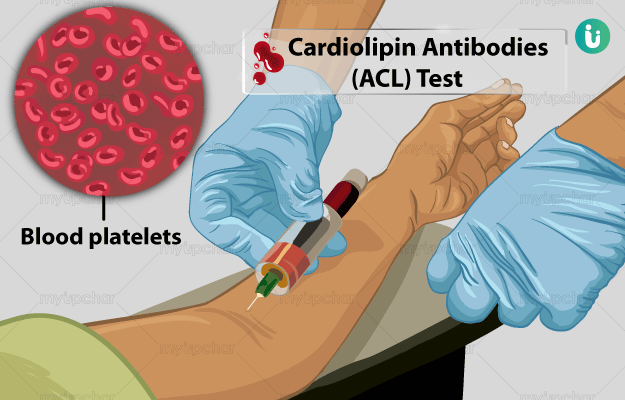Normal results: Absence of cardiolipin antibodies indicates a negative or normal test result.
Abnormal results: Presence of cardiolipin antibodies indicates a positive or abnormal result.
Mild to moderate amount of ACL antibodies does not point to any specific condition.
However, high levels of cardiolipin antibodies indicate a high risk of excessive clotting (possibility of developing DVT, pulmonary embolism) or recurrent miscarriages.
Antiphospholipid syndrome is diagnosed if the aforementioned conditions are present. Antiphospholipid syndrome can be primary (not related to autoimmune disorders) or secondary (associated with autoimmune disorders).
In certain individuals, cardiolipin antibodies are evaluated along with venereal diseases (VDRL) such as syphilis. However, phospholipids are present in the reagent that tests for syphilis, which can result in a false-positive ACL test.
Three types of cardiolipin antibodies are present in the blood, viz. IgM, IgG and IgA. IgM and IgG are the most common variants that are tested, but when these are negative and yet symptoms are suspected, IgA variant is evaluated.
In some individuals, additional tests, such as platelet count, PTT (or APTT) and antinuclear antibodies (ANA), are also performed to conclude the diagnosis of an abnormal clotting process.
Disclaimer: All results must be clinically correlated with the patient’s complaints to make a complete and accurate diagnosis. The above information is provided from a purely educational perspective and is in no way a substitute for medical advice from a qualified doctor.






























